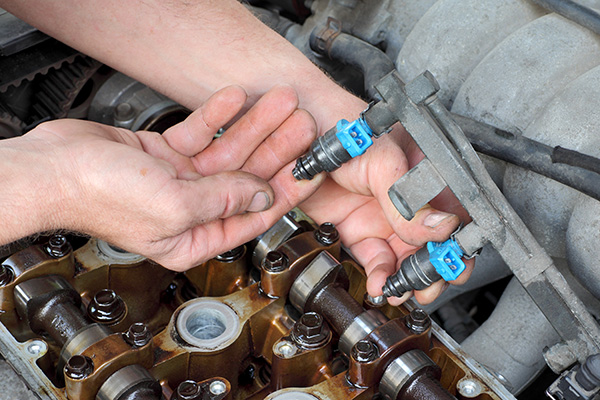
A car’s fuel pump delivers gasoline from the tank to the engine. Without a properly functioning fuel pump, your vehicle’s performance can suffer dramatically, or worse, it might not run at all. But how do you know when your fuel pump is failing? We’ll share the key warning signs that indicate it might be time to replace your fuel pump.
Difficulty Starting the Engine
One of the first signs that your fuel pump is going bad is difficulty starting your car. If the fuel pump isn’t able to supply the engine with the proper amount of gasoline, the engine will struggle to start or may crank longer than usual before finally firing up. Sometimes, the car might not start at all, leaving you stuck.
While other issues, like a dead battery or faulty starter, can also cause starting problems, a failing fuel pump is a common culprit that shouldn’t be overlooked. If you notice this symptom consistently, it’s a good idea to get your fuel pump inspected.
Engine Sputtering or Stalling
Has your engine ever sputtered or stalled while driving? That could be a sign of a failing fuel pump. When a fuel pump can’t maintain a steady flow of fuel to the engine, it can cause the engine to sputter, particularly at high speeds or when accelerating. The vehicle may even stall entirely, forcing you to restart the engine.
A fuel pump that’s on the way out will often exhibit this behavior sporadically, meaning you might experience smooth driving one day and sputtering the next. Ignoring this issue can result in your engine stalling completely, especially when you least expect it.
Loss of Power During Acceleration
One of the more obvious signs of a failing fuel pump is a sudden loss of power when you try to accelerate. This can be particularly noticeable when driving uphill or overtaking another vehicle. If the fuel pump isn’t delivering enough fuel to the engine, the car may hesitate or jerk when you press the accelerator.
This is a dangerous situation, especially on highways, as it can prevent you from accelerating properly and maintaining speed. If you feel your car hesitates when you accelerate, don’t ignore it—it’s likely your fuel pump needs attention.
Loud Whining Noise from the Fuel Tank
Have you noticed a loud whining or buzzing noise coming from your fuel tank? While it’s normal to hear a faint hum when your fuel pump is working correctly, excessive noise is a sign something’s wrong. A bad fuel pump can make a loud, high-pitched whining sound, indicating it’s struggling to function properly.
If you hear this noise, especially in combination with any of the other symptoms mentioned above, it’s a clear indication that your fuel pump is likely on its last legs and needs to be replaced.
Decreased Fuel Efficiency
A failing fuel pump can also lead to poor fuel efficiency. When the pump isn't working as it should, it might deliver too much or too little fuel to the engine. If it’s delivering too much, your engine will burn through gasoline faster than necessary, causing your miles per gallon (MPG) to drop.
You might notice that you’re filling up at the gas station more often than usual without any changes in your driving habits. While poor fuel efficiency can have various causes, a faulty fuel pump is one of the more serious ones that needs immediate attention.
Engine Surges
An inconsistent fuel flow from the fuel pump can cause your engine to surge unexpectedly. You may feel a sudden burst of power while driving as if the car is accelerating on its own. This happens because the fuel pump is delivering too much fuel in bursts, causing the engine to react abruptly.
Engine surging is a serious issue that can affect your control over the vehicle, especially at high speeds. If your car is surging, it’s crucial to have your fuel pump checked as soon as possible to avoid further complications.
Are you having trouble starting, accelerating, or hearing strange noises from your fuel tank? Let the experts at Future Auto Service diagnose and fix your fuel pump issues quickly. Book your appointment now!